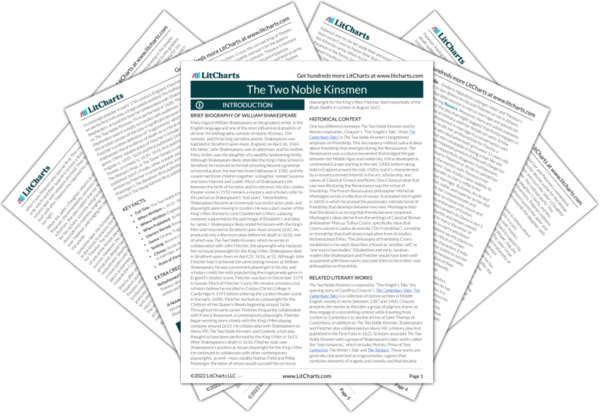Emilia’s lamentation conveys her depth of suffering. She is so wracked with guilt over her complicity in this bloodshed that she assumes her situation must be a punishment the gods are forcing her to incur for some unspecified, horrible sin—otherwise, she thinks, why would she be in this position? Emilia also criticizes the notion that there could ever be a true winner in the cousins’ duel, since whoever is the victor will ultimately lose “a noble cousin” as a direct consequence of the triumph.
